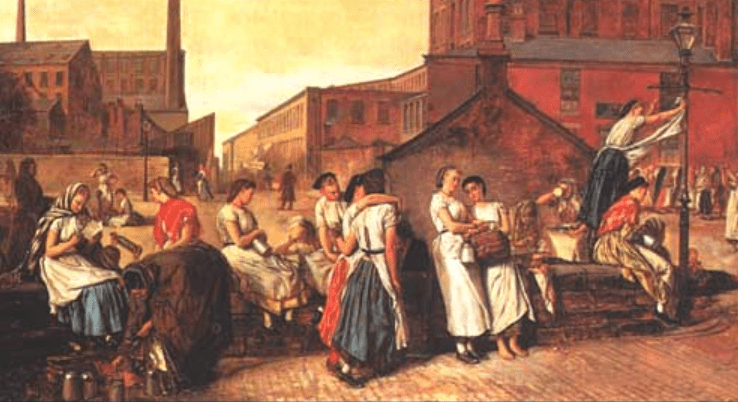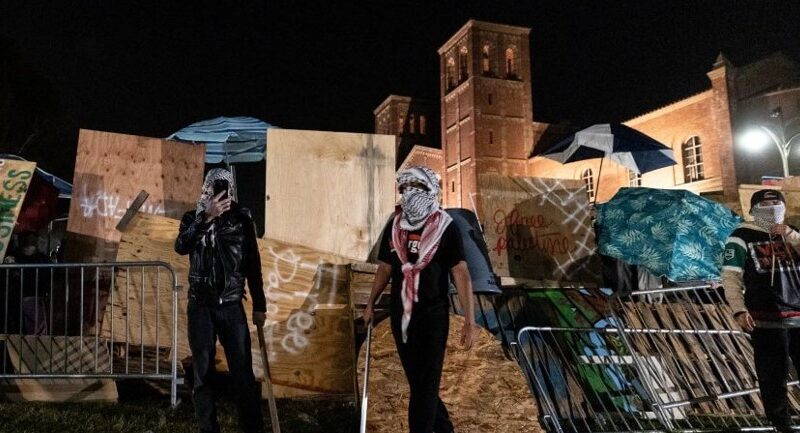Review by Hilary Barker
This small collection of six essays by Dorothy Thompson, on English social history, starts with an interesting introduction in which the writer explains her role as an historian, a mother and wife to one the best known historians of English social and political history, EP Thompson.
She modestly begins by saying that not only has he been a more prolific writer and major historian, but that her husband’s work is of a higher quality than hers. I’ve got to say I found her writing very easy to read and not too academic. She says they are generally in agreement on questions of historical interpretation, not least because, I think, they share similar beliefs and values in recognising the role of working class people in achieving the great social changes that took place over a relatively short space of time between the revolutions in France and America and the outbreak of the First World War. I am amazed at how much was won in so short a time.
This collection of essays was compiled over a period of around 25 years, having to be fitted in and around bringing up children, running a household and being politically active in the Communist Party.
I especially liked reading the introduction in which she outlines a basic autobiography. With a background in social psychology, I am particularly curious about early formative years as it can explain a lot about who the person becomes.
Dorothy Thompson was in the Communist Party
One story especially stood out for me, and it was about the 1945 general election. It seems that Edward Thompson was a junior officer when the Beveridge report appeared, and he was told by his commanding officer to talk to the men about it, to get hold of a copy and read it, “because you can’t attack it without reading it first“.
Dorothy was a member of the Communist party, whose leaders at the time were proposing a post wartime coalition to include “all shades, from Churchill to Gallagher”. This surprised me. Some of her friends who stood for Labour at the election found themselves elected to Parliament, much to their own amazement. The result seems like it took many by surprise. She had never experienced an election in which there was so much hope for social change based on ideas of full employment and universal health care.
There was a hunger for change from the old class-based ways of doing things and a hope for the future for all the children that were about to be born. Speaking as one of those 1947 babies growing up with rationing, I was aware of a great sense of fairness and social justice for everyone. Our school class sizes were huge compared to later, but we didn’t know any different and it was part of my experience that education was seen as a vehicle for betterment on both a personal and societal level.
School dinners in what used to be a people’s canteen
Children were seen as precious and to be cared for both physically and educationally, hence the wonderful school dinners, ours served in what had been a people’s canteen during the war. Fresh food, mainly locally grown and sourced, cooked on the premises with seconds for any that wanted them! I usually did and was well known to all the dinner ladies! Oh, and school milk every day. Once again, I loved it. I think most of us were always slightly hungry. No snacks in those days! Not until sugar came off rationing.
Ken Loach’s film The Spirit of 45 catches some of the zeitgeist of the time, although I suppose it must have varied from one place to another. I don’t suppose all of the more privileged members of British society would have appreciated both the extent and length of rationing for example. We all had really good teeth, though, due to the lack of sugar! Reading the introduction of Dorothy Thompson’s book brought back memories of how it was for many working class families, until well into the mid-50s.
The essays themselves focus on Chartism and its relationship with women and the Irish in English radicalism. She finishes with a very interesting analysis of the role of Queen Victoria as a female monarch. I could see why there is a degree of popular support for royalty today and especially for the late Queen.
I learnt a lot about the Chartists that I hadn’t known before, for example, that it was part of the early charter to campaign for an eight-hour day and other modern working practises as early as 1834.
Chartists demands were very far-ranging
I hadn’t known about the Glasgow cotton spinners strike and subsequent trial of the union leaders for murder. The Chartist demands for the abolition of tithes and all church rates, the abolition of the death penalty in all cases, the abolition of flogging in the army, the emancipation of Jews, for a ballot, for universities to be open to all classes, and so on.

I had no idea about the Jacobin tradition and was very happy to pursue it further for myself. The way the movement arose slowly and steadily building on previous protest movements and philosophies, the use of dialogue as a force of persuasion, the well read and articulate writings and speeches of the working class members goes against the popular perceptions of the working classes at the time as illiterate, ignorant, and uneducated. In essence, they were self-educated and very focused on the beliefs of the previous revolutions in France and America, ‘no taxation without representation’, equality and fraternity.
The working class as an essential and articulate force
The movement rose and fell in a series of waves throughout the 1800s, but ended with a working class awareness and confidence which, despite some short term failures, carried on through to various forms of movements and activities both in the UK and abroad. “The working class was established as an essential and articulate force in British politics“, Thompson writes.
The essay on Ireland and the Irish in English radicalism was worth reading for a number of reasons. Firstly, to realise just how complex it all was, and secondly for the appearance of a character by the name of Peter Doyle from Newcastle and a mention of my home town of Wigan in the same sentence. “In Wigan, later to be the scene of Irish-English clashes in the 1860s, an Irish handloom weaver, John Lenegan, was, leader of the Chartists. Peter Doyle, Catholic building worker from Newcastle, later recalled some of the more dramatic incidents in the Chartist period and described the regular outdoor meetings“.
Doyle was an admirer of O’Connell but strayed from his “moral force” teachings to buy a pike and take part in the stoning of troops called out to disperse a meeting of six thousand chartists in Newcastle in July 1839.
Separate Irish enclaves outside city walls
My Irish ancestors in Wigan would have been at the scenes of the clashes as, they came over from Ireland in the years of the great famines, 1845 and 1848, and lived in a separate enclave outside various town walls, and I think I may recognise the descendant of Peter Doyle!
Carlisle, where I live now, also had its share of riots, marches, meetings and burnings of effigies. I understand at least one local cotton manufacturer was stoned, when he tried to speak to the crowd, and had to be rescued by the police. Carlisle Castle had to have specially constructed barracks to house the militia brought in to quell the riots that broke out sporadically from time to time.
It is quite sobering to realise just how long and hard a fight it was to gain the rights we have today. None of the rights we have – to be in a union, to demonstrate, to hold rallies, to go on strike – none of them were given for free. They all had to be fought for and were granted grudgingly and under duress – the duress imposed by the workers’ movement. How hard they had to fight for things is taken for granted by most people now.
I wish we had been taught working class history in school instead of all about the Tudors and the Stuarts. It is a history that happened on our doorsteps, in our towns and on our local moors and we are often completely unaware of it. Such a shame.
But I also understand why the powers-that-be would be afraid of the working class understanding and knowing their own history! It is a good way to distract them from realising their own power to focus on Kings and Queens.
Outsiders was published by Verso in 1993 but second-hand copies can still be found, for example at Abe Books, here.



